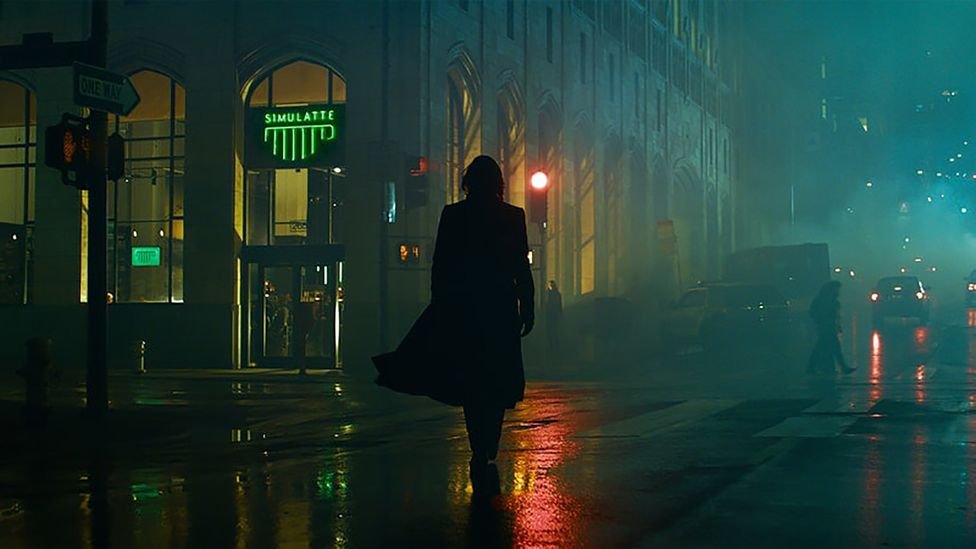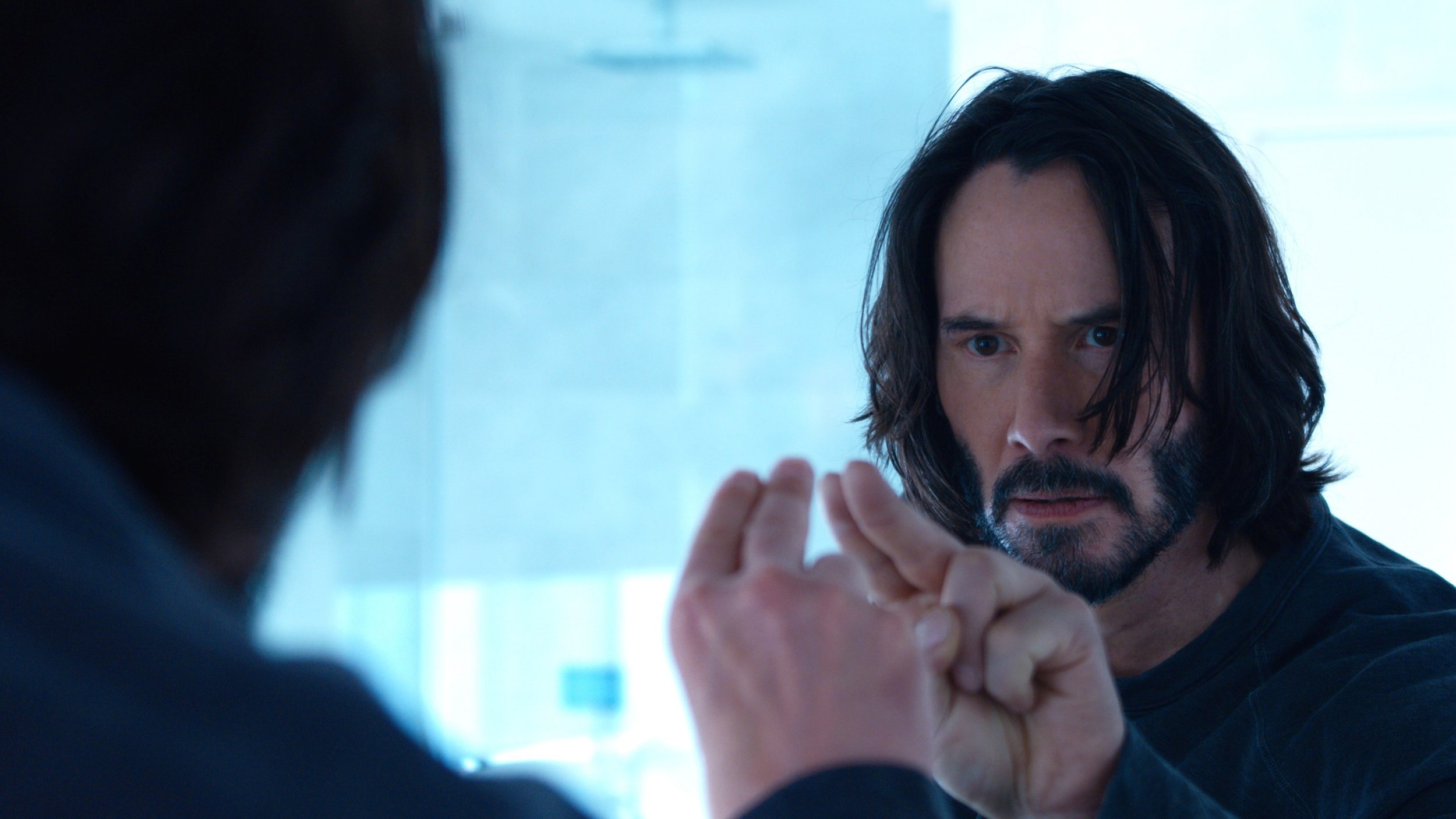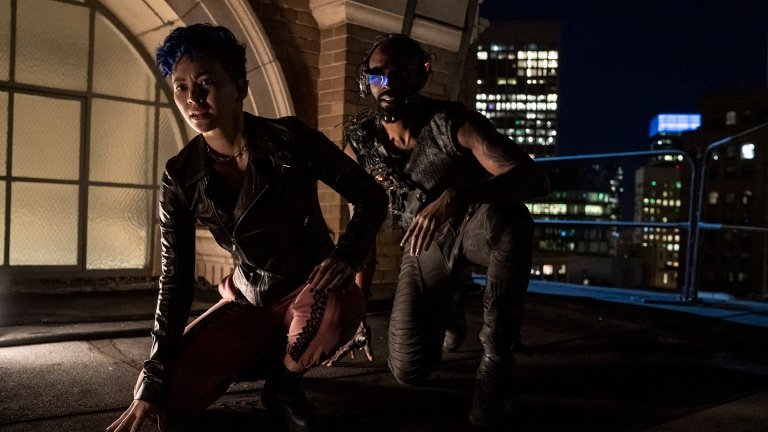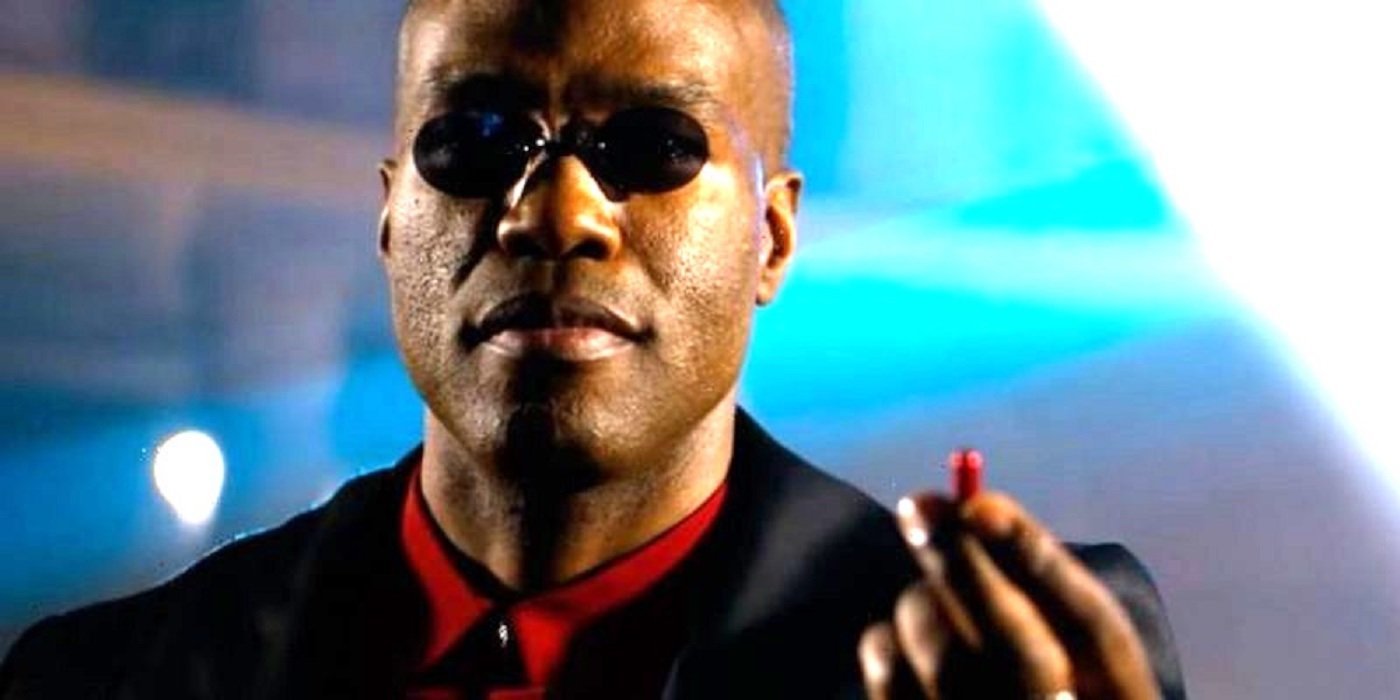I was pretty surprised when it was announced that another sequel to The Matrix was being produced, even though many fans felt like there was room to follow up on the trilogy capper The Matrix: Revolutions.
Now, eighteen years after that seemingly final entry, Lana Wachowski has returned as director and co-writer (sans sister Lilly) with the surprisingly meta The Matrix: Resurrections. Let me take care of some business first. I am going to attempt a spoiler-free review, but the film is best viewed without any foreknowledge, I feel. Additionally, you should know that yes, I enjoy the sequels (as well as the animated anthology The Animatrix). I’d even go so far as saying that The Matrix: Reloaded is my favorite of the series, with the motorcycle chase sequence being one of my favorite action scenes of all time. Now you know what you’re getting into.
It’s apparent right off the bat that we’re going to be exploring the legacy of the franchise within the narrative itself, but also with regards to its cultural impact on our world. Folks who found the philosophical elements of the sequels to be too opaque probably lament hearing this, but this self-awareness adds yet another layer to the film’s cerebral intentions. The first act conceals what is actually going on and is consequently the most unconventional, and subversive, stretch. Although, it really is just playing with the series’ favorite theme of what constitutes reality in a more ironic way.
After the reveal, the film shifts gears into more recognizable sequel territory. There are callbacks and expansions upon series canon. Wachowski and her co-writers (David Mitchell and Aleksandar Hemon) labor to make the fan service relevant to the narrative while mostly avoiding the modern tendency in decades later sequels to merely rehash franchise highlights. Returning characters remain recognizable, with a few notable exceptions. Neo (Keanu Reeves) and Trinity (Carrie-Anne Moss) have arcs that feel organic to the story being told and seem comfortable within their performances. Jada Pinkett Smith has a little tougher role to fulfill but does a fine job. We also get Lambert Wilson’s Merovingian in a fun sequence.
In the lead-up to the release, many wondered why the character of Morpheus, memorable inhabited by Laurence Fishburne in the original trilogy, was recast. After seeing the film, I feel the reasoning behind this makes sense within the context of the plot. Yahya Abdul-Mateen II does good work too, balancing impression with making something new. Jonathan Groff maybe has the most unenviable task of the film, but I enjoyed his work. Here’s to hoping that he gets to do more Mindhunter someday.
Jessica Henwick’s Bugs is the most substantial new character and she gives the film its scrappy heart. I found Priyanka Chopra Jonas to be a little vanilla in a surprise role, but I welcomed the part she played. My favorite performance belongs to the always-welcome Neil Patrick Harris, though. He has great chemistry with Reeves and his chatty demeanor makes for a nice foil to Neo’s world-weary uncertainty.
Daniele Massaccessi and John Toll’s cinematography is visually engaging and makes for an interesting watch. However, it’s definitely a noticeable departure from Bill Pope’s work in the previous three flicks. This film feels smaller, though that may be a result of the plot. Rest assured, there are plenty of striking images. Joseph Jett Sally’s editing imitates Zach Staenberg’s work from the original trilogy in certain spots, delivering some consistency, though. Action sequences are well done, but I wouldn’t say they’re on the same level as the rest of the series. This could be because of Reeves’ age, although he has looked relatively ageless in the recent John Wick films, so my inclination is to think that Wachowski wasn’t interested in topping what came before, as is customary in sequels like this. That would also make sense to the film’s overall approach of zigging where fans might expect a zag, too.
Another element that differentiates this entry from its predecessors is the music. Tom Tykwer (writer/director/composer of the awesome Run Lola Run) and Johnny Klimek replace Don Davis and Juno Reactor. The score is fine, but Juno Reactor brought so much flavor and atmosphere previously, and they are missed here.
Wachowski seems a little uncertain with what she’s trying to convey, in some regards. Is the film a coda or epilog to the original series? Is it a meta and political commentary on the franchise and Hollywood’s commodification of art and ideas? Is it the beginning of an expansion of the series mythology that reflects our current hopes and fears in the way the original trilogy reflected the turn of the millennium concerns? The answer to all of this is “yes.” It’s admirable how much of the film works in service to all of these aesthetics, but it also feels slightly muddled, as a result. Of course, that’s somewhat par for the course for this series. Wachowski and company are asking questions that don’t have uncomplicated answers and that makes for an imperfect cinematic experience. However, it could be argued that imperfection is a theme of the series, with its explorations of what it means to be human, our perception of reality, and the nature of sentience.
I enjoyed Lana Wachowski’s The Matrix: Resurrections. I have no doubt that many will say it doesn’t work, though. I think if you dig the sequels and have an open mind about what can be done when revisiting a series so many years later, then you’ll probably be satisfied. It’s a clever film and its humor also sets it apart from the original flicks as it connects with its past while also turning a hopeful eye toward the future. Recommended, with caveats, to fans of New Nightmare, Logan, and Blade Runner 2049.
Michael Cavender








